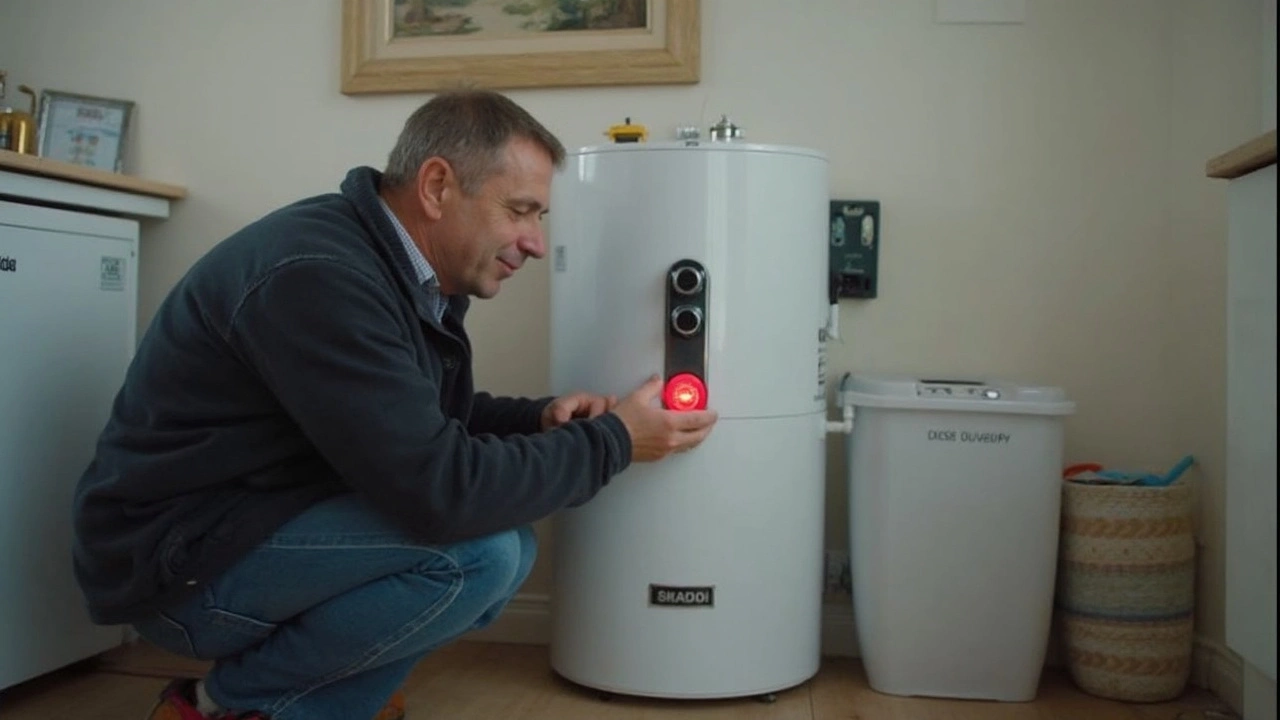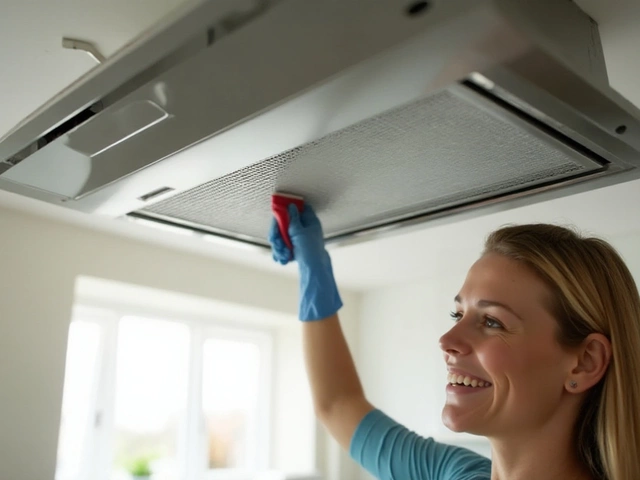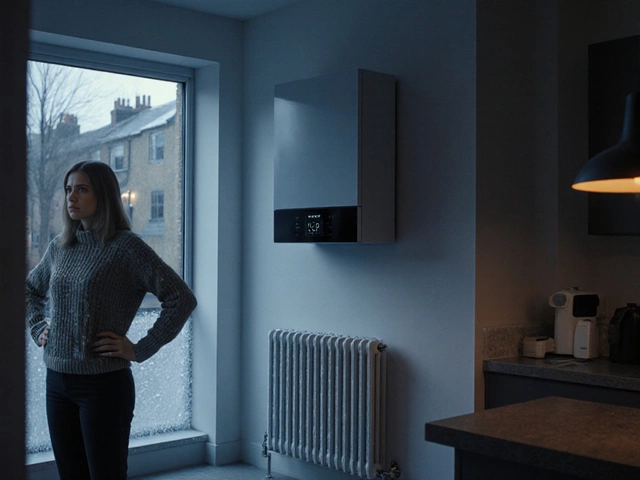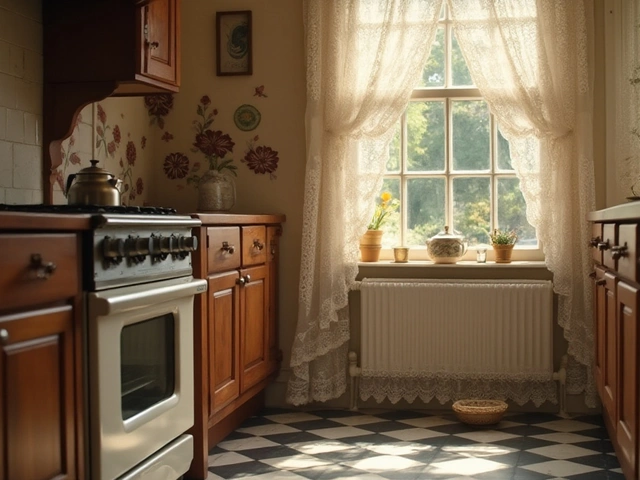Cold showers are annoying, but most water‑heater hiccups are easy to spot and often cheap to fix. Below you’ll find the most common reasons your heater stops delivering hot water, quick DIY steps, and clear signs that you need a professional.
First, check the power source. Electric heaters need a 240‑volt supply; a tripped breaker or a loose connection will shut the element down instantly. If you have a gas unit, make sure the pilot light is lit and the gas valve is fully open.
Another frequent culprit is sediment buildup. Over time minerals settle at the bottom of the tank, insulating the heating element or burner and forcing the system to work harder. The result is a slower recovery time and sometimes a complete loss of heat.
Thermostat mis‑settings also cause problems. Many homeowners set the dial too low to save energy, then wonder why the water never gets warm enough. The sweet spot is usually around 120 °F (49 °C) – hot enough for comfort, safe for pipes, and still efficient.
Leaking tanks are harder to hide. Look for puddles around the base, rust stains, or a constantly running pressure‑relief valve. A small leak can turn into a big repair, and in many cases replacing the unit is cheaper than fixing a corroded tank.
Finally, a water‑heater that keeps resetting is often signaling a faulty high‑limit switch or an overheating element. The switch trips to protect the unit, then resets when it cools. Repeated trips suggest a deeper electrical issue that most DIYers should leave to a qualified repairer.
Regular flushing is the cheapest way to extend life. Turn off power or gas, attach a garden hose to the drain valve, and let the tank empty until the water runs clear. Do this once a year; if you have hard water, twice a year works better.
While the tank is empty, inspect the anode rod. This sacrificial metal piece grabs corrosion before the tank does. If it’s more than 50 % worn, replace it – a simple wrench job that can add years to your heater.
Testing the heating element is next. Remove the access panel, disconnect the wires, and use a multimeter set to ohms. A reading of 10‑30 Ω usually means the element is healthy; anything higher indicates a break.
If you find a broken element, a replacement costs about £30‑£50 plus labour. Swapping it yourself is doable if you’re comfortable with basic electrical work – always turn off the breaker first.
Call a professional when you encounter any of these red flags: persistent resetting, unexplained leaks, noisy rumbling, or a faulty thermostat. A qualified engineer can safely handle gas connections, replace the high‑limit switch, and ensure everything complies with UK safety standards.
In short, most water‑heater issues start with a simple power check, a flush, or a thermostat tweak. Keep a maintenance schedule, watch for the tell‑tale signs of sediment or leaks, and you’ll enjoy hot water without costly surprises.

Ever wondered why you end up pushing that red reset button on your water heater over and over? This article digs into exactly what the reset button does, why it keeps tripping, and what can go wrong if you keep hitting it. Get clear answers about hidden water heater issues and learn simple steps to protect your system—and your wallet. We’ll walk you through warning signs, smart troubleshooting tips, and when it’s time to call a pro. No tech jargon, just straight talk for anyone tired of cold showers.

Routine maintenance of extractor fans is crucial to maintaining indoor air quality and ensuring the efficient operation of these ventilation systems. This article explores why servicing extractor fans is important, providing insight into potential problems that may arise if overlooked. Learn how regular upkeep can prevent costly repairs and improve the lifespan of your equipment. Discover practical tips and a step-by-step guide on how to ensure your extractor fan is operating at its best. Keep your home fresh and healthy by understanding the significance of extractor fan servicing.

A practical UK guide that tells you exactly who to call when your boiler fails, how to verify a qualified engineer, and what steps to take before and after the repair.

Microwaves are essential in modern kitchens, but when they break down, deciding whether to repair or replace them can be tricky. This article explores the factors that influence repair decisions, common microwave issues, and when it's more economical to buy a new one. It also offers tips on maintaining your microwave to prevent future problems. Understand the costs involved and make an informed choice on your kitchen appliances.

When your boiler breaks down, taking a comfortable shower suddenly feels like a luxury. This article explains exactly what happens to your shower when a boiler goes out, ways to still get clean, and when you should call in a professional. Learn alternative methods for washing, bust some myths about cold showers, and get tips on preventing future breakdowns. We even cover what to do if you have kids or need to keep up with fitness routines. Staying clean during a crisis isn’t impossible—you just need a bit of know-how and some creative solutions.

Water heaters are essential fixtures in homes, providing warm water for daily needs. Understanding their lifespan can help homeowners plan for replacements and avoid unexpected cold showers. Depending on the type and maintenance, a water heater can typically last between 8 to 12 years. Regular inspections and upkeep can potentially add years to a water heater's lifespan.